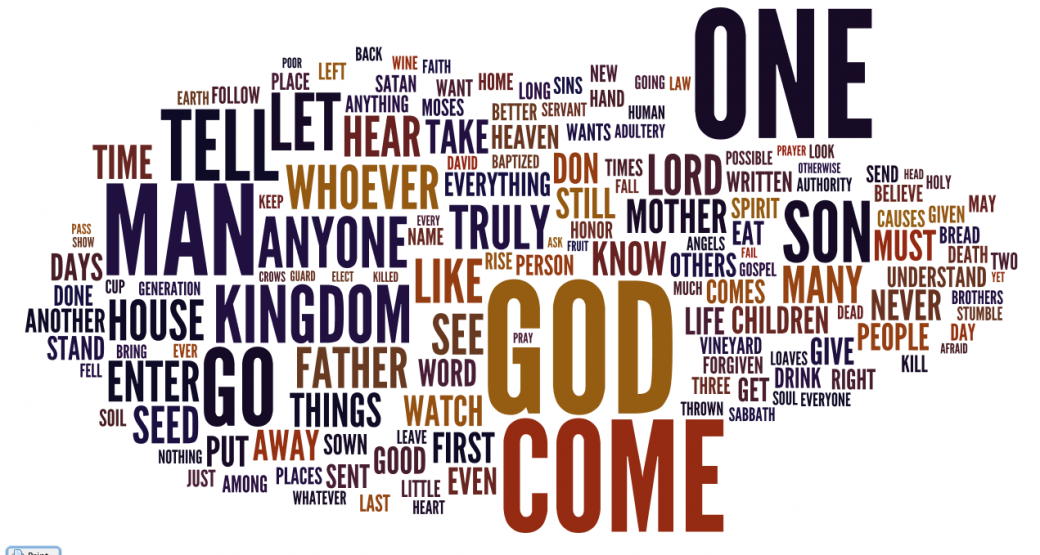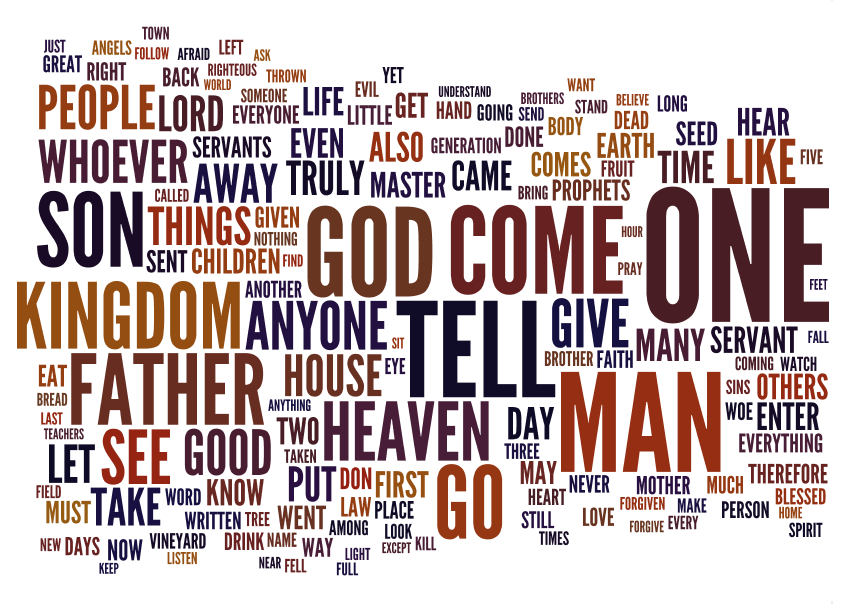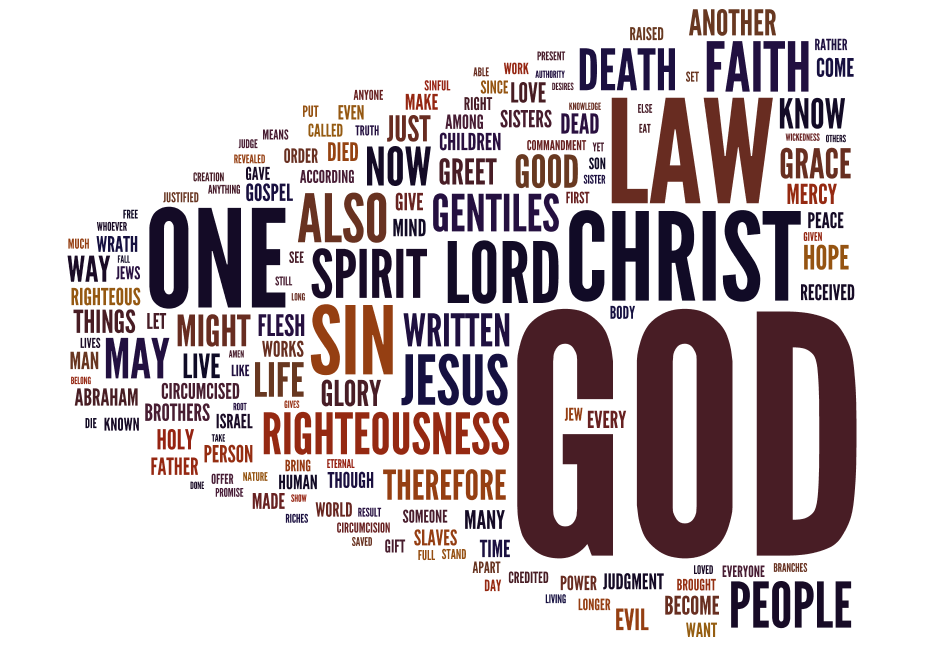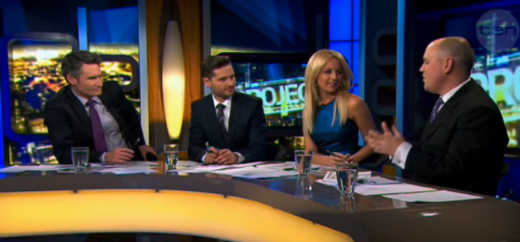Should we be using iPads, and presumably other forms of technology in church? Or does that undermine the concept of the word of God? Does it white ant the authority of the Bible?

I don’t think so. But, this post went a little viral last week. It attempts to make the case against preachers reading the Bible from tablet devices.
“And yet I am finding that cutting-edge, 21st-century technology is subtly but quickly changing important, even indispensable aspects of Christianity. Consider just one example: the ever-growing tendency to substitute a physical, visible Bible (remember . . . the ones where you lick your finger and turn the pages) with a tablet in the pulpit.”
Conflating medium and message like this is dangerous. As is not understanding the importance of the relationship between medium and message. But the church would die tomorrow (or in this generation) if we did not adapt our mediums to continuously carry the message.
I’ve written some dumb stuff in my time, so I don’t like throwing stones at dumb ideas – but this post enshrines 16th century Reformation values as modern regulations in a pretty unhelpful way. Imagine trying to make this case for a physical, presumably leather bound book, in the early church…
His argument kind of boils down to the symbolism involved in the use of particular physical mediums – what they represent. What they communicate.
“Yes, this tablet contains the digital text of the Bible, but visually that tablet represents so much more. It is an icon of social media and a buffet of endless entertainment.”
And in trying to pre-emptively move away from the technological idol, he idolises the hard copy.
“In short, a print copy of the Scriptures in the pulpit represents something far more focused and narrow: a visible symbol of God speaking to his people, the master Shepherd feeding his flock.”
That borders on idolatry. The physical form of the Bible – I’m not talking the words themselves – but what they’re printed on as a symbol? No thank you. Unless you want to take me back to Greek or Hebrew characters scrawled on pages by scribes…
I reckon Augustine would be rolling in his grave at the argument that wrong use of technology – in this case tablets – negates any right use.
This is quite a ridiculous statement. When you think about it. The “problem” as described, may even be accurate… but is it caused by better technology? A hyperlinked medium? I doubt it.
“When the preacher says, “Turn in your Bibles to . . . ,” the layperson simply clicks on a link or enters the text into a search box. As a result, I am increasingly discovering as a professor at a Christian university that students do not know where books in the Bible are located, let alone how the storyline of redemptive history develops. Many laypeople do not possess the ability to see the text in its context. Consequently, these old-fashioned, basic, Bible-learning skills are being lost.”
I want to suggest – and I’ll attempt to outline my thinking below – that this is an apt description of the modern “layperson,” and that the Reformers are a model for thinking about how this sort of technology could be embraced by the church, but that they wouldn’t be mounting arguments more at home in the Luddite movement than in a reforming church.
Here are a couple more quotes before we move on.
“And should an unbeliever walk in for the first time, would he know that we are a people of the book?”
Here’s where he displays his cards – I’d argue we’re people of God’s written word. Not people of the book. Being a person of the book makes no sense when books no longer exist (or before books exist). Honestly, picture a day in 50 years where nobody but a collector or a traditionalist is all that interested in physical mediums – what message are you sending in this post 1984/Farenheit 451 dystopia if you’re trying to insist on the use of a book? Is the gospel not relevant in this cultural wasteland?
Interestingly – media theorists – those who study the rapidly changing landscape of the things that carry messages – often chart the rise and fall of empires through history and note that staying apace with change is really important. Media Theorist Marshall McLuhan (who coined the phrase “the medium is the message”) said:
“Any change in the forms or channels of communication, be it writing, roads, carts, ships, stone, papyrus, clay, or parchment, any change whatever has revolutionary social and political consequences.”
The way the people of God have selected, used, and adapted mediums to carry the message of the Gospel has ensured the longevity of the gospel message. God’s communication agents, his messengers, have always kept pace with (and in the case of the Reformation – driven) changes in communication mediums. Preferring mediums that are easily transmitted in a way that breaks down physical barriers, or impediments, to messages spreading.
Consider the Epistle. A short letter that could be easily duplicated and ferried around a network of roads – rather than relying on one speaker on a tour, or setting up an impressive statue with a stone inscription…
Consider the Reformation. Luther didn’t just translate the Bible. He produced fliers that were designed to spread quickly, to start conversations, to stir controversy, to change minds. Luther also complained about the typesetting of some of his pamphlets – because good use of emerging mediums is important. Luther would love the iPad.
Look. If your evangelistic strategy depends on you carrying a physical Bible. I think you’re doing it wrong. And if you can’t think of ways to use the digital text of the Bible to start conversations with people. I think you’re doing it wrong. And if you think you need a book, a physical book, in church to be doing it right. I think you’re doing it wrong. I’m not sure “carry a book” was what Paul meant when he said, in Colossians 3:
“Let the message of Christ dwell among you richly as you teach and admonish one another with all wisdom through psalms, hymns, and songs from the Spirit, singing to God with gratitude in your hearts.”
Richly seems a little bit more than the two dimensional written/spoken approach underpinning that post.
“… when the smartphone or iPad (or name your mobile device) replaces a hardcopy of Scripture, something is missing in our nonverbal communication to unbelieving onlookers. When you walk to church, sit down on a bus, or discipline one another at a coffee shop, a hard copy of the Bible sends a loud and bold message to the nearest passersby about your identity as a Christ follower. It says, “Yes, I am a Christian and I believe this book is the Word of God telling us who we are and how we should live.”
The medium should support the transmission of the message
This is kind of communication/media theory 101. The medium is incredibly important. The paradigm for this is, believe it or not, Jesus himself.
In Jesus, the word of God takes on an unprecedented three dimensional reality that is incredibly flexible (not simply rigid text). God’s word becomes rich in that Jesus could be experienced by those he interacted with in the flesh, with the senses.
Marshall McLuhan, said of the incarnation of Jesus:
“In Jesus Christ, there is no distance or separation between the medium and the message: it is the one case where we can say that the medium and the message are fully one and the same.”
I would say it is Jesus himself who is centrally important, and provides the pattern for thinking about the relationship between medium and message. Not the written word. This means being flexible with our use of mediums – not rigidly holding on to a “flexibility” developed in the Reformation.
Here’s what Paul says about Jesus approach to becoming a physical communication medium in Philippians 2, and how that seems to impact his approach to communication in 1 Corinthians 9.
Philippians 2…
5 In your relationships with one another, have the same mindset as Christ Jesus:
6 Who, being in very nature God,
did not consider equality with God something to be used to his own advantage;
7 rather, he made himself nothing
by taking the very nature of a servant,
being made in human likeness.
8 And being found in appearance as a man,
he humbled himself
by becoming obedient to death—
even death on a cross!
1 Corinthians 9…
19 Though I am free and belong to no one, I have made myself a slave to everyone, to win as many as possible. 20 To the Jews I became like a Jew, to win the Jews. To those under the law I became like one under the law (though I myself am not under the law), so as to win those under the law. 21 To those not having the law I became like one not having the law (though I am not free from God’s law but am under Christ’s law), so as to win those not having the law. 22 To the weak I became weak, to win the weak. I have become all things to all people so that by all possible means I might save some. 23 I do all this for the sake of the gospel, that I may share in its blessings.
In Jesus, God sacrificially accommodated us, his audience. So that we could understand what he was communicating – try understanding an infinite God without God making himself human… the medium was one that we could understand and relate to. Paul works hard to be a medium those he seeks to reach can understand and relate to as he presents the gospel to them…
If we really want to become part of the world we’re trying to communicate the message of Jesus to, it’s no good hanging on to old fashioned ways of communicating the message – unless you want a church exclusively made up of nostalgics hungry for a tactile connection to God – and that’s probably idolatry… we should be at the forefront of thinking about how we can pair God’s timeless word with timely mediums. We should be looking to incarnate the message in new mediums in a way that accommodates those we seek to reach.
If we don’t adapt – we will die.
It’s only through speaking the language of the people, in forms they are familiar with, that we can start addressing some of the deeper literacy issues when it comes to the Bible – and I firmly believe that a greater ability to follow intertextual links along a thread (or trajectory) through the Bible is where we’re going to see a greater grasp of a Christ centred Biblical Theology developing.
So even the legitimate concern raised above is addressed by making the books of the Bible more intertextually linked – through actual links – than they ever have been before. And now it’s in your pocket. Not in a clunky old book that you have to lug around on a plane to start a conversation…





















